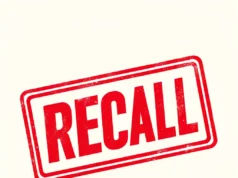
As the guardians of consumer trust, we delve into the intricacies of product recalls in this article. We dissect the reasons behind them and underscore their importance in ensuring consumer safety and preserving brand integrity.
Product Recalls Explained: A Synchronized Symphony
A product recall, in essence, is a request to return a product after the discovery of safety issues or product defects that might endanger the consumer or put the manufacturer at risk of legal action. The recall process is a meticulously orchestrated event, involving various stakeholders, including manufacturers, retailers, regulatory bodies, and, of course, consumers.
The Genesis of a Recall: From Product Design to Manufacturing
Product recalls can stem from various stages in a product’s life cycle. Design flaws, manufacturing defects, inadequate quality control, and faulty raw materials can all be catalysts for recalls. Once a potential hazard is identified, the clock starts ticking on a comprehensive investigation and subsequent recall if necessary.
Regulatory Bodies: The Unsung Heroes
Regulatory bodies play a pivotal role in maintaining market integrity and consumer safety. They enforce stringent standards and recall procedures that companies must adhere to, serving as the gatekeepers of product safety. By monitoring these agencies’ updates, consumers can stay informed about the latest recalls and product safety news.
The Manufacturer’s Role: Responsibility and Accountability
When a product fault is identified, manufacturers must spring into action. Their role extends beyond merely issuing a recall notice. It involves arranging for the return, repair, or replacement of the product, managing the logistical challenges, and mitigating the risk to consumers and their own brand reputation.
The Retailer’s Part: Recall Execution and Consumer Communication
Retailers, often the point of contact for consumers, have a critical role to play in a product recall. They are tasked with removing the recalled product from their shelves, informing consumers, and facilitating the return or exchange process. In short, they’re instrumental in bridging the gap between manufacturers and consumers during recalls.
Product Recalls and Consumers: A Test of Trust
Recalls can significantly impact consumers’ trust in a product or brand. How a recall is managed can make the difference between a temporary setback and long-term damage to a brand’s reputation. Consumers, for their part, should heed recall notices and follow the suggested actions to safeguard their health and safety.
Recalls: An Opportunity for Improvement
Product recalls, despite their negative connotation, often serve as catalysts for improvement. They can spotlight areas of weakness in a product’s design or manufacturing process, leading to product and process enhancements that ultimately benefit the consumer.
In conclusion, product recalls are a complex, multi-faceted issue that affects all players in the market, from manufacturers to consumers. Understanding how they happen and why they matter is key to maintaining consumer safety and trust in the products we use every day.







